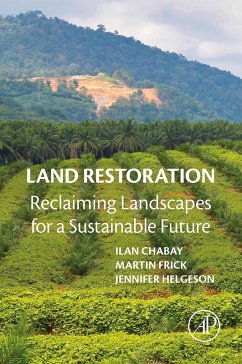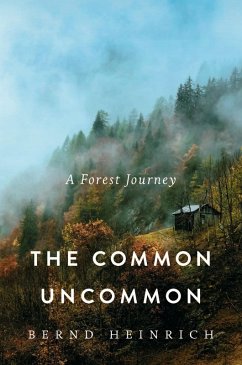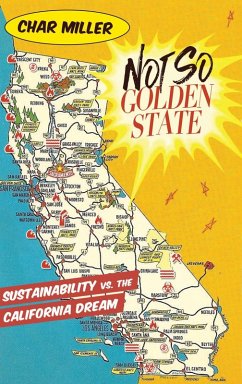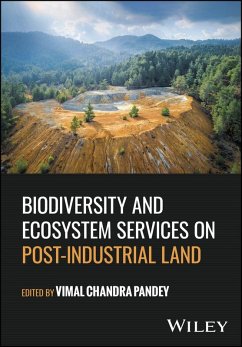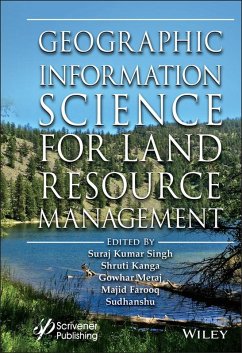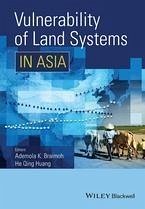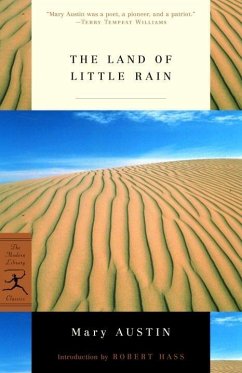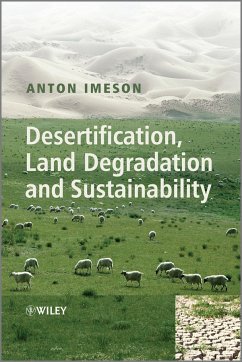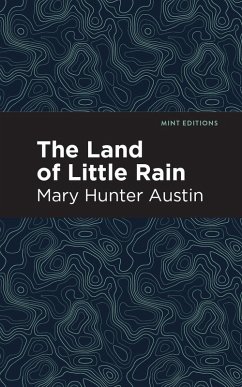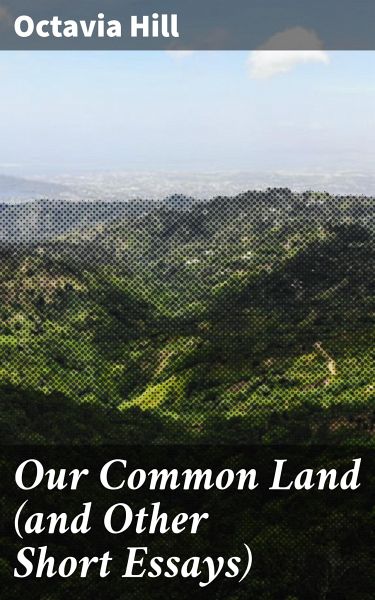
Our Common Land (and Other Short Essays) (eBook, ePUB)
Enriched edition. Nature, Community, and Social Reform: A Literary Exploration
Kommentar: Fletcher, Jenna / Redaktion: Good Press
Versandkostenfrei!
Sofort per Download lieferbar
1,99 €
inkl. MwSt.
Weitere Ausgaben:

PAYBACK Punkte
0 °P sammeln!
In "Our Common Land (and Other Short Essays)," Octavia Hill delivers a profound reflection on the relationship between urban spaces and nature, emphasizing the importance of preserving common land for public enjoyment and environmental health. Combining eloquence with earnestness, Hill's literary style is characterized by a moral clarity that is both didactic and accessible. Emergent from the Victorian context, her essays strike a chord with contemporary environmental concerns, presenting strong arguments for social responsibility and communal stewardship that resonate with modern audiences. A...
In "Our Common Land (and Other Short Essays)," Octavia Hill delivers a profound reflection on the relationship between urban spaces and nature, emphasizing the importance of preserving common land for public enjoyment and environmental health. Combining eloquence with earnestness, Hill's literary style is characterized by a moral clarity that is both didactic and accessible. Emergent from the Victorian context, her essays strike a chord with contemporary environmental concerns, presenting strong arguments for social responsibility and communal stewardship that resonate with modern audiences. As a pioneering social reformer and co-founder of the National Trust, Octavia Hill's experiences in advocating for public access to green spaces shaped her vision for the shared land. Her commitment to improving urban living conditions for the working class informs these essays, showcasing a deep understanding of the intersections between nature, community, and urbanization. Hill's life and activism lend authenticity to her prose, reinforcing her belief that accessible green spaces are critical to the social fabric of society. This collection is a compelling read for those interested in environmental ethics, social reform, or Victorian literature. Hill's eloquence not only engages the reader intellectually but also encourages a moral reckoning with our current treatment of common spaces. "Our Common Land" is more than a literary work; it is a call to recognize and protect our shared environment. In this enriched edition, we have carefully created added value for your reading experience: - A comprehensive Introduction outlines these selected works' unifying features, themes, or stylistic evolutions. - A Historical Context section situates the works in their broader era-social currents, cultural trends, and key events that underpin their creation. - A concise Synopsis (Selection) offers an accessible overview of the included texts, helping readers navigate plotlines and main ideas without revealing critical twists. - A unified Analysis examines recurring motifs and stylistic hallmarks across the collection, tying the stories together while spotlighting the different work's strengths. - Reflection questions inspire deeper contemplation of the author's overarching message, inviting readers to draw connections among different texts and relate them to modern contexts. - Lastly, our hand-picked Memorable Quotes distill pivotal lines and turning points, serving as touchstones for the collection's central themes.
Dieser Download kann aus rechtlichen Gründen nur mit Rechnungsadresse in A, B, BG, CY, CZ, D, DK, EW, E, FIN, F, GR, H, IRL, I, LT, L, LR, M, NL, PL, P, R, S, SLO, SK ausgeliefert werden.




